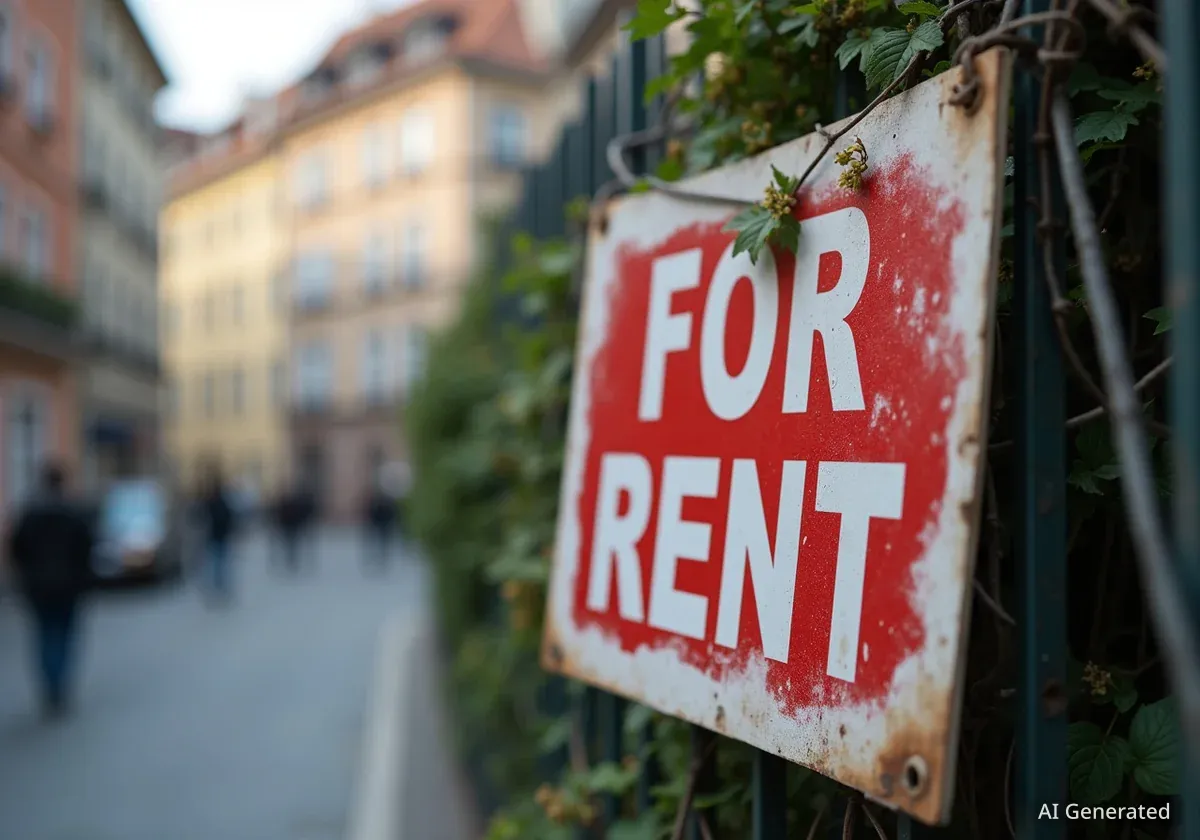Voters in Bern have approved a new initiative requiring landlords to disclose the previous tenant's rent when a property is re-rented. This decision marks a significant victory for tenant advocacy groups and left-green political parties, surprising many who expected a more conservative outcome from Bern's traditionally center-right electorate.
The new rule aims to increase transparency in the rental market. It will allow prospective tenants to see how much the previous occupant paid, potentially preventing excessive rent increases. This measure is expected to have a notable impact on the housing market in Bern's urban centers.
Key Takeaways
- Bern voters approved the rent disclosure initiative.
- Landlords must now provide previous rent information to new tenants.
- The decision is a win for tenant associations and left-green parties.
- The initiative aims to bring more transparency to the rental market.
- It could limit significant rent increases in the canton.
Voter Support for Transparency
The approval of the rent initiative represents a clear expression of public sentiment in Bern. Despite the canton's historical voting patterns, which often lean towards center-right policies, citizens voted in favor of greater tenant protection. This outcome suggests a growing concern among residents about housing affordability and fairness.
Tenant associations, such as the Mieterinnen- und Mieterverband, actively campaigned for the initiative. They argued that knowing the previous rent is a fundamental right for anyone seeking a new home. This information helps level the playing field between landlords and tenants.
Fact: Bern's Rental Market
Bern's rental market, particularly in its urban centers, has seen rising prices in recent years. This trend has put pressure on many households. The new initiative directly addresses these concerns by providing more data to renters.
Impact on Landlords and Property Owners
The decision is a significant setback for conservative parties and the Hauseigentümerverband (Homeowners' Association). These groups opposed the initiative, arguing it would create unnecessary bureaucracy and interfere with the free market. They expressed concerns about potential negative effects on property investments.
According to a spokesperson for the Hauseigentümerverband, the new rule could make property management more complex. They suggested it might discourage landlords from making necessary renovations or improvements if they feel their ability to adjust rents is too restricted.
"This vote sends a clear message that Bern's citizens want a fairer housing market," stated a representative from the Mieterinnen- und Mieterverband. "It ensures that tenants have essential information to make informed decisions."
The New Disclosure Requirement
Under the newly approved initiative, landlords must provide prospective tenants with a form detailing the rent paid by the previous tenant. This requirement applies to all new rental agreements. The goal is to prevent landlords from significantly increasing rents between tenants without proper justification.
For example, if a two-bedroom apartment in the Breitenrain district was rented for CHF 1,800, the new tenant must be informed of this amount. If the landlord proposes a higher rent, the new tenant will have a basis to question the increase.
Context: Similar Measures
Similar rent transparency measures exist in other Swiss cantons and European cities. These policies aim to curb speculative rent increases and protect tenants from unfair practices. Bern's adoption aligns it with a growing trend towards greater regulation in housing markets.
Expected Effects on the Rental Market
While the initiative is a symbolic win for tenants, its practical impact may be limited in some areas. Experts suggest that the effect will be most pronounced in highly competitive rental markets where demand significantly outstrips supply. In these areas, landlords may still find ways to increase rents, even with disclosure requirements.
However, the new rule provides tenants with a powerful tool for negotiation. It allows them to challenge rent increases they deem unjustified. This shift in power could lead to more stable rental prices over time, especially in popular urban neighborhoods.
- Increased Transparency: Tenants gain access to crucial historical rent data.
- Negotiation Power: Renters can better challenge proposed rent increases.
- Potential Stabilization: Rent prices might become more stable in key areas.
- Landlord Adaptation: Property owners will need to adjust their rental strategies.
Next Steps and Future Measures
The Mieterinnen- und Mieterverband views this initiative as a first step. They plan to advocate for additional measures to further strengthen tenant rights and ensure housing affordability. These future steps could include stricter controls on rent increases or support for affordable housing projects.
Bern's political landscape will likely see continued debate on housing policy. The recent vote highlights the importance of rental issues for many citizens. The outcome shows that voters are willing to support policies that address the cost of living.
The success of the initiative in Bern's urban centers, which have a higher concentration of renters, was crucial for its overall passage. These areas provided the necessary votes to overcome opposition in more rural, traditionally conservative parts of the canton. This geographic split illustrates the varying concerns across Bern's diverse communities.
The implementation of the new law will be closely watched by both tenant and homeowner associations. Its long-term effects on rent prices, housing availability, and property investment will become clearer in the coming months and years. This vote marks a significant moment for tenant rights in the Canton of Bern.




